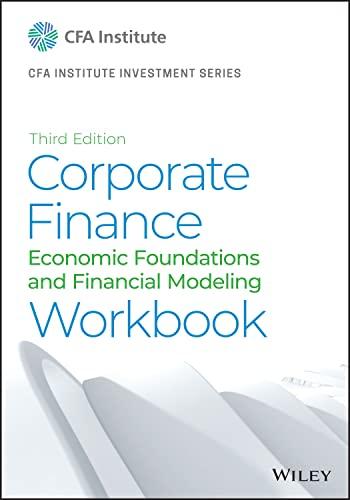Which of the statements made by Yorkton on ESG factors in investment analysis is correct? A. Statement
Question:
Which of the statements made by Yorkton on ESG factors in investment analysis is correct?
A. Statement 1 B. Statement 2 C. Statement 3 Theresa Blass manages the Toptier Balanced Fund (the Fund) and recently hired John Yorkton, a junior analyst, to help her research investment opportunities. Blass plans to integrate environmental, social, and governance (ESG) factors into her analysis. She is researching an equity investment in Titian International, a global steel producer. She asks Yorkton to identify ESG factors impacting Titian and estimate the equity valuation for the company. Yorkton uses proprietary methods to identify the ESG factors.
Yorkton points out that Titian’s steel production is energy intensive and relies on coal in producing its main product, stainless steel. The firm’s major customers are oil and gas firms using stainless steel in their drilling operations. Most of Titian’s steel capacity is located in developing economies, where it currently faces few environmental regulations. Titian has a 10-member board with a chairperson and 5 independent members. The chairperson is not the CEO, and the board is diverse, with 6 women. The company has an excellent record on employee health and safety. In a discussion with Blass about ESG factors in investment analysis, Yorkton makes the following statements:
Statement 1 Material ESG information used in investment analysis is best obtained from the individual companies.
Statement 2 The level of disclosure varies among companies because these disclosures are voluntary.
Statement 3 The time horizon has little effect on the materiality of the underlying ESG factors.
Yorkton integrates ESG factors into the equity valuation of Titian. He believes the company faces significant long-term risk due to regulatory changes regarding greenhouse gas emissions in the developing economies. These changes will have a negative impact on Titian’s steel capacity and its production costs. Based on long-term forecasts from the International Energy Agency (IEA), Yorkton expects oil and natural gas demand to decline over the next decade, reducing oil company capital expenditures on exploration and drilling. He uses a discounted cash flow model to value Titian stock.
Step by Step Answer:

Corporate Finance Workbook Economic Foundations And Financial Modeling
ISBN: 9781119743811
3rd Edition
Authors: CFA Institute, Michelle R. Clayman, Martin S. Fridson, George H. Troughton





